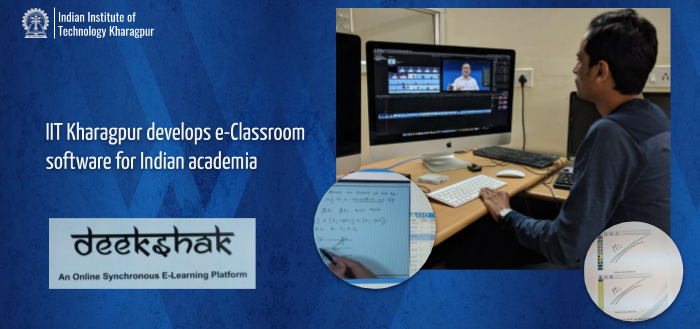
IIT Kharagpur develops e-Classroom software for Indian academia – DEEKSHAK
Dataquest Careers 360 Dainik Jagran Indian Express Hindustan Times The Tribune Outlook NDTV Researchers at IIT Kharagpur have developed an e-classroom software, DEEKSHAK. With COVID-19 lockdown and social distancing, educational institutions across the world have shifted to electronic mode. Meeting software platforms are being popularly used for online classes. But the users are frequently experiencing challenges with regard to security issues, and more importantly, the operational requirements of an electronic classroom which…

